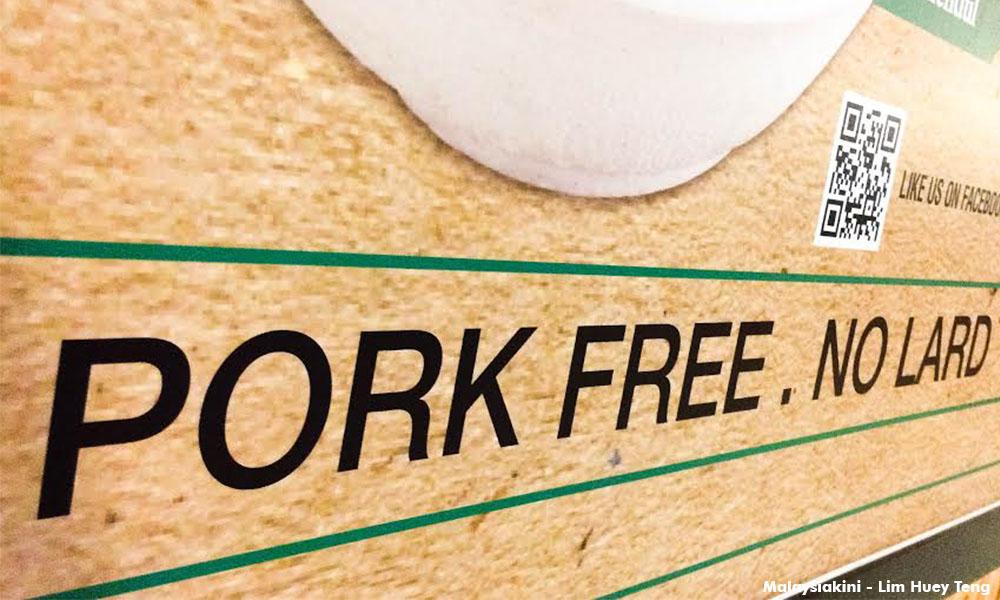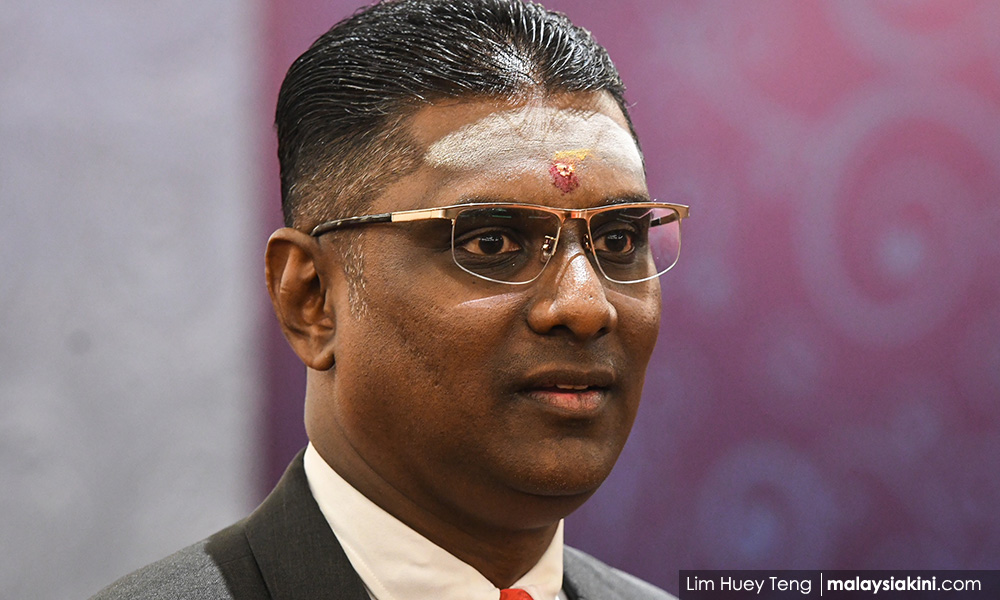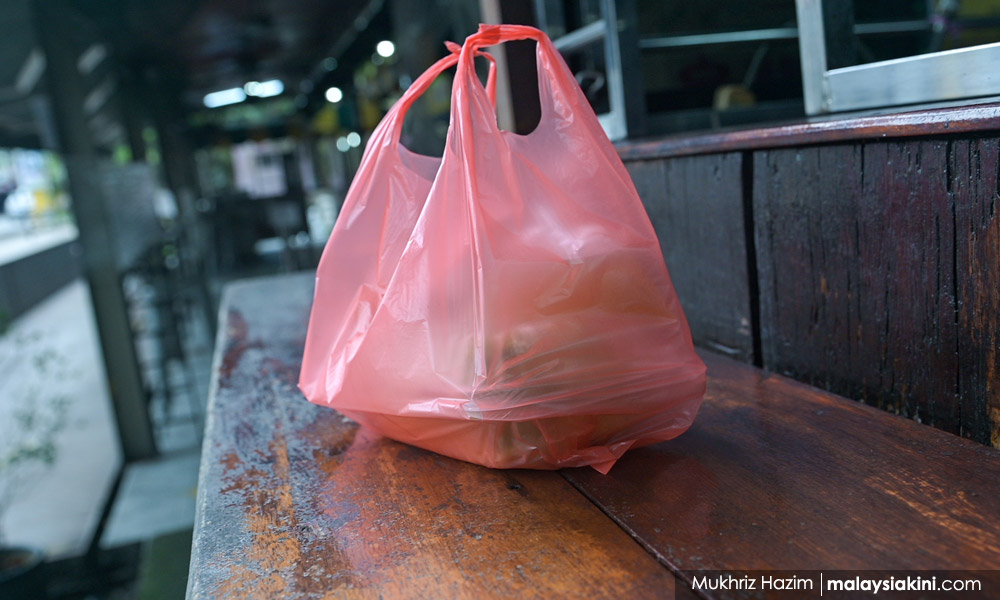Many are upset that a worker was sacked from a Chinese Muslim restaurant for wearing a cross. What? So all non-Muslims working in halal hotels and restaurants must be dismissed?
Other Muslims say no, that’s not the issue. They are upset the place was “deceiving” Muslim customers. How? Because workers - including the cross-wearer - were wearing songkoks while the place had no halal certificate?
But many Malay stalls and restaurants have not been halal certified, so much so that the Department of Islamic Development Malaysia (Jakim) had to urge them to do so.
What if one of these non-certified places hired a Myanmar worker who accidentally forgot to take off his Buddha pendant before coming to work? Or what if a Nepali Hindu worker there had a red pottu on his forehead? Would there be a similar outcry?
One suspects not. Is it because Chinese Muslims are under closer scrutiny? Or is it because the cross triggers a potent allergic reaction?
This is the second halal food blowup in just one month after nasi kandar babi hit the news in late October. Is it a sign of growing religious intolerance?
Speaking of “deception”, does that mean non-Malay politicians must stop wearing the songkok? Can a more “sensitive” person accuse them of using the headgear to “confuse” or “trick” Muslims into believing they are “Malay friendly”?

It’s not a joke. In 2016, a deputy minister and a ministry enforcement director claimed “no pork” or “pork-free” signs at eateries were meant to “mislead” Muslims into thinking they are halal.
The Pahang Islamic Religious Department even ordered food outlets in that state not to use such signs to avoid, yes, “confusing” the public.
Against the law
The current controversy involves the Mon Chinese Beef Roti restaurant in Kuala Lumpur. If there was any “deception”, I would say they were pretending to be Jamaican, who pronounce “Ya man” as “Ya mon”!
OK jokes aside, the place had recently opened and there were long queues, mainly from Muslims. So the cross-wearing worker was sacked, presumably to avoid alienating their main customers.
But what they did is illegal, according to former human resources minister M Kulasegaran, who pointed out the country has laws against religious discrimination in the workplace.

He added, “I fear that one day employers might take issue with their workers putting (Hindu) white ash on their foreheads.”
Bandar Kuching MP Kelvin Yii commented that non-Muslims are allowed to prepare halal food as long as requirements are met.
“The restaurant should have simply released a statement assuring the public that all guidelines on halal food preparations are being strictly followed,” he said.
User “Nina’s Nazri” posted on X (Twitter) that the sacking was wrong because “Wearing a cross has no bearing on the halal status of the food served.”
But others stuck to the “deception” narrative. Were they overreacting? Is it yet another sign of the growing racial and religious divide in Malaysia?
Food extremism?
How far can this go? Currently, larger hotels must have a separate entrance and lift for non-halal food.
Will Muslim customers next insist that food delivery riders serving them cannot ever have non-halal food in that big box on their motorbikes? In other words, must food riders be separated between those sending halal and non-halal foods?
Yeah, food deliveries are all wrapped in (too much) plastic and are supposed to be put into separate compartments of the box. But could some molecules of say, hot pork noodles, somehow evaporate, or worse, leak, and thus “contaminate” the whole box?

The beef about “deception” over the beef roti place was that it was not halal certified - yet. It didn’t matter that the meat in the buns was sourced from local halal sources.
Restaurant manager Sofia explained they only recently opened but the process to get certified “takes a lot of time as there are many documents needed.”
Many have complained that the halal application process is difficult, time-consuming, and expensive. This is precisely why many outlets just prefer to say “no pork” instead.
While Jakim has denied their procedures were difficult, recently on Oct 3, Deputy Prime Minister Ahmad Zahid Hamidi confirmed there were many complaints that the approval and issuance of halal certificates took too long - between nine months and two years. This was reported by Bernama.

Thus, the Malaysia Halal Industry Development Council has decided that starting in early 2024, the application procedures for halal certificates will be simplified, with the approval period shortened to only 23 working days.
And so perhaps the whole controversy over beef roti could have been avoided if the halal certificate had been issued quickly.
The “sensitivity” over halal food seems to occur more in West Malaysia. The Sarawak Malays seem to have no issue enjoying their nasi lemak while their Chinese friends are eating porky kolo mee or kuay chap at the same kopitiam table.
High halal quality?
Rather than something that divides us, I wish halal was something that unites us – as a symbol of quality, like the label “organic”.
When the World Halal Forum was held in Kuala Lumpur in 2006, Khairy Jamaluddin said, “We want to promote halal as a premium item… for confidence in the integrity of (an) entire food chain that is clean, safe, and healthy.”
In addition, the Malaysian Islamic Youth Movement (Abim) has called on the authorities to include eco-friendly requirements for halal certification. This is to educate Muslims to take environmental protection seriously.
Halal is supposed to mean a product that complies with Islamic principles of hygiene. But what about halal restaurants that are dirty? We’ve all heard about mass food poisoning from some school canteen operators.
In the modern context, a product may be halal yet packed with harmful chemicals such as preservatives, nitrates (burgers and sausages), plus artificial colourings and flavourings.
Is all that healthy for Muslims? Perhaps that is a wee bit more important than whether a worker preparing beef roti is wearing a cross. - Mkini
ANDREW SIA is a veteran journalist who likes teh tarik khau kurang manis. You are welcome to give him ideas to brew at tehtarik@gmail.com.
The views expressed here are those of the author/contributor and do not necessarily represent the views of MMKtT.




No comments:
Post a Comment
Note: Only a member of this blog may post a comment.